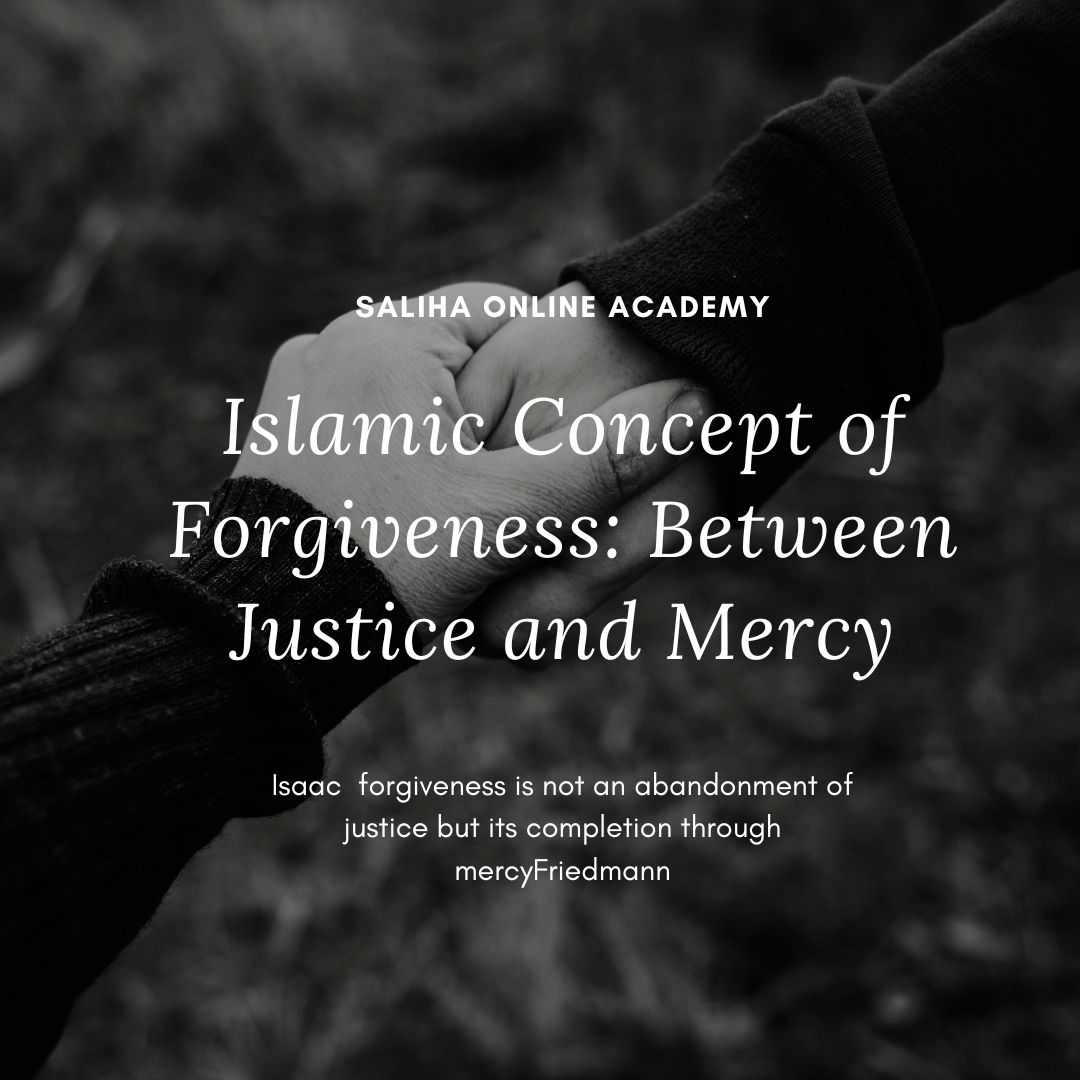Forgiveness in Islam stands at the crossroad of ʿAdl (justice) and Raḥmah (mercy). While justice demands that wrongs be accounted for, mercy allows for compassion and pardon. In Islam, these two attributes are not opposites but complementary, forming a central axis of belief, ethical living, and spiritual healing.
Understanding Islamic Forgiveness
In Islamic theology, forgiveness has multiple dimensions:
- Divine Forgiveness: God (Allah) is described in the Qur’an and Hadith with names like Al‑Ghaffār (The Great Forgiver), Al‑‘Afūw (The Pardoner), Ar‑Raḥmān (The Entirely Merciful), and Ar‑Raḥīm (The Especially Merciful). These names highlight that God’s mercy includes forgiving sins when one repents sincerely.
- Human Forgiveness: Muslims are encouraged to forgive each other, even when justice could demand punishment or retribution. Prophetic practice shows patience, mercy, and forgiveness as virtues that mend broken relationships and foster social harmony.
Justice in Islam
Justice (ʿAdl) in Islam means giving each person what is due—whether reward or punishment. It validates that moral responsibility, social order, and accountability are essential. Islam teaches that every believer will be judged according to their deeds. The idea is not that mercy overrides justice but that both work together in God’s attributes and in human relations.
Mercy: Its Scope and Limits
Mercy in Islam doesn’t mean ignoring wrongdoing. Instead, it is an attribute that allows for forgiveness, for overlooking faults, and providing second chances—especially when one repents. Islamic teachings affirm God’s mercy encompasses all things. However, mercy is not unconditional in all contexts; repentance (tawbah) and sincere intention are requirements for divine forgiveness. For interpersonal forgiveness, the wronged person also plays a role.
The Balance: Between Justice and Mercy
The Quran and Hadith illustrate that justice and mercy balance each other, rather than compete:
- Repentance and Forgiveness: God’s attribute At‑Tawwāb underscores that He is ever ready to accept repentance. When a sinner turns back with remorse and halts wrongdoing, divine forgiveness is promised.
- Legal Rights vs. Personal Mercy: In many Islamic legal frameworks, there is room for forgiveness even when laws allow punitive measures. For example, the Qur’anic principle of qisas (retribution) is tempered by the option to pardon or accept compensation. This shows mercy can be incorporated within justice.
- Social Healing: Forgiveness helps maintain social cohesion. It reduces cycles of vengeance, encourages reconciliation, and mirrors the broader divine mercy that Muslims believe God shows to humanity.
Practical Implications for Believers
- Self‑reflection and Tawbah: A believer must acknowledge wrongdoing, feel regret, decide not to return to sin, and ask God’s forgiveness.
- Forgiving Others: Even when one has a legal or moral right to demand recompense, choosing forgiveness brings spiritual reward. The Qur’an reminds believers to pardon others as they hope Allah will pardon them.
- Maintaining Justice: Forgiveness should not lead to injustice. Islam teaches that fulfilling rights—of God and of people—is essential. Where harm has been done, justice and restoration matter. Forgiveness complements justice; it does not eliminate it.
Conclusion
In Islam, forgiveness is not an abandonment of justice but its completion through mercy. Divine justice assures accountability; divine mercy offers hope, transformation, and peace. For believers, the path lies in seeking God’s forgiveness, upholding justice in human interaction, and choosing mercy whenever possible. This balance enriches both personal spiritual life and the fabric of a just, compassionate society.


Leave A Comment